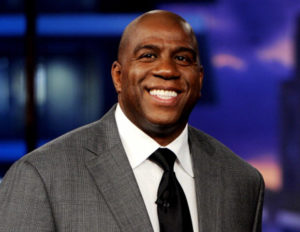 NBA teams in small markets have always had a pronounced disadvantage in attracting free agents, as well as keeping their drafted players who are blossoming into max level superstars.
NBA teams in small markets have always had a pronounced disadvantage in attracting free agents, as well as keeping their drafted players who are blossoming into max level superstars.
It only makes sense that young guys would rather live in Miami or Los Angeles than Sacramento for personal reasons as well as branding opportunities, or perhaps because big market teams are usually more successful and they actually want to win games as opposed to toiling around in Memphis for years.
So the NBA, acting along with the players union, has attempted to engineer some parity into the game through a complex and fairly byzantine set of rules too complicated to get into, but there is one I’d like to focus on:
A max contract is the most a team is allowed to pay a player under the salary cap rules. There are usually only one of these contracts per team, sometimes two, so these are all-star level cornerstone players, the best on their teams.
In an effort to encourage max level players, who are usually the face of the franchise, to re-sign with their current teams, the NBA allows the current team to sign the player for a maximum of five years, but a new team to sign him for only four. Because these are extremely lucrative contracts, and they escalate in salary each year, that means a player leaving his current team is taking a huge risk of leaving money on the table.
For example, LeBron James contract with the Lakers is paying him $35.6 million this season, but in its final year in 2022, he’ll be making $41 million.
Yet, because he signed with the Lakers as a free agent, he was not eligible for the final year of that contract, which would be worth roughly an additional $40 million, so he could potentially lose out on that if he’s not directing porn by then. Granted it’s a small price to pay to not live in Cleveland.
In an effort to get around losing out on that extra year, players such as Anthony Davis are now signing contracts with their current teams under the auspices of committing to play out that contract and subsequently demanding trades and refusing to play.
While this may come off as opportunistic and dishonest it’s hard to blame the players for pulling these stunts. Teams do the exact same thing, signing the player and blowing smoke up his ass about how he’ll retire in a certain city, only to trade him days later.
It turns out, people in general are really gross and dishonest.
However, this new effort on the part of the players to dishonor their contracts is now pushing the balance even further in favor of big market teams.
If every all star wants to play in either LA, New York, or San Francisco, and can force their hand into making that happen, what chance does Milwaukee have of fielding a decent team?
The talent drain is twofold: Firstly the small market teams are losing the great players they drafted to bigger market teams, and secondly they now have a difficult time attracting free agents because their team sucks since they have lost most of their good players.
This leads small market teams at the mercy of self-interested players, having no ability to exert any power over the player in response.
So, here’s my idea of how to fix this: The NBA Draft lottery gives bad teams a higher chance of receiving higher draft picks.
A lot has been said about this but basically many people are annoyed that the system encourages tanking, often leading small market teams to continue sucking in perpetuity only in hopes of getting a number one draft pick who will just leave anyway after a few years.
The NBA recently modified the rules to discourage this, and now the three teams with the worst records have an equal chance of getting the number one pick, and generally evens out the playing field after that.
I propose weighting the draft lottery, along with the team’s record, based on the size of their media market.
There’s a wide chasm between the top markets such as New York and Los Angeles and those at the bottom such as New Orleans and Charlotte.
There’s also, not directly, a connection between market size and the success of the team. A team like the Knicks has to work much harder to be bad than the Pelicans do. One is shear incompetence, the other is at least understandable.
If the Knicks get 20 ping pong balls for having the worst record, they should lose ten of them based on being the biggest market. Inversely, New Orleans should pick up ten extra balls.
This will allow the small market teams to have a deeper talent pool and to retain the players they draft, while negating to some degree the privilege that big market teams have to attract the players looking to leave the small market teams because their small market team sucks.
I really think this would help solve the parity problem that the NBA is failing to properly address, since their players appear to be gaming the system.
One less ping pong ball per million residents, one more per swamp or abandoned factory.
